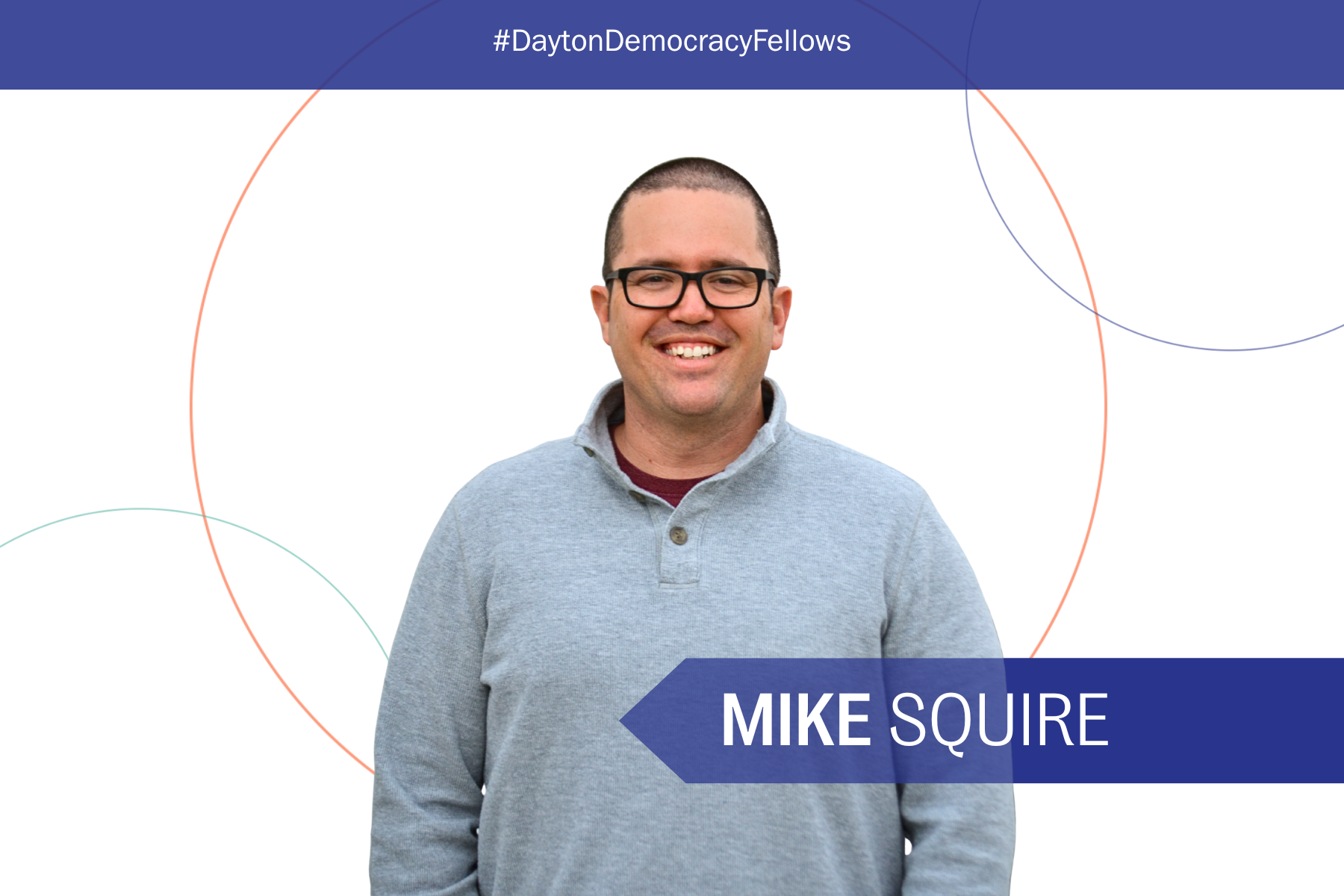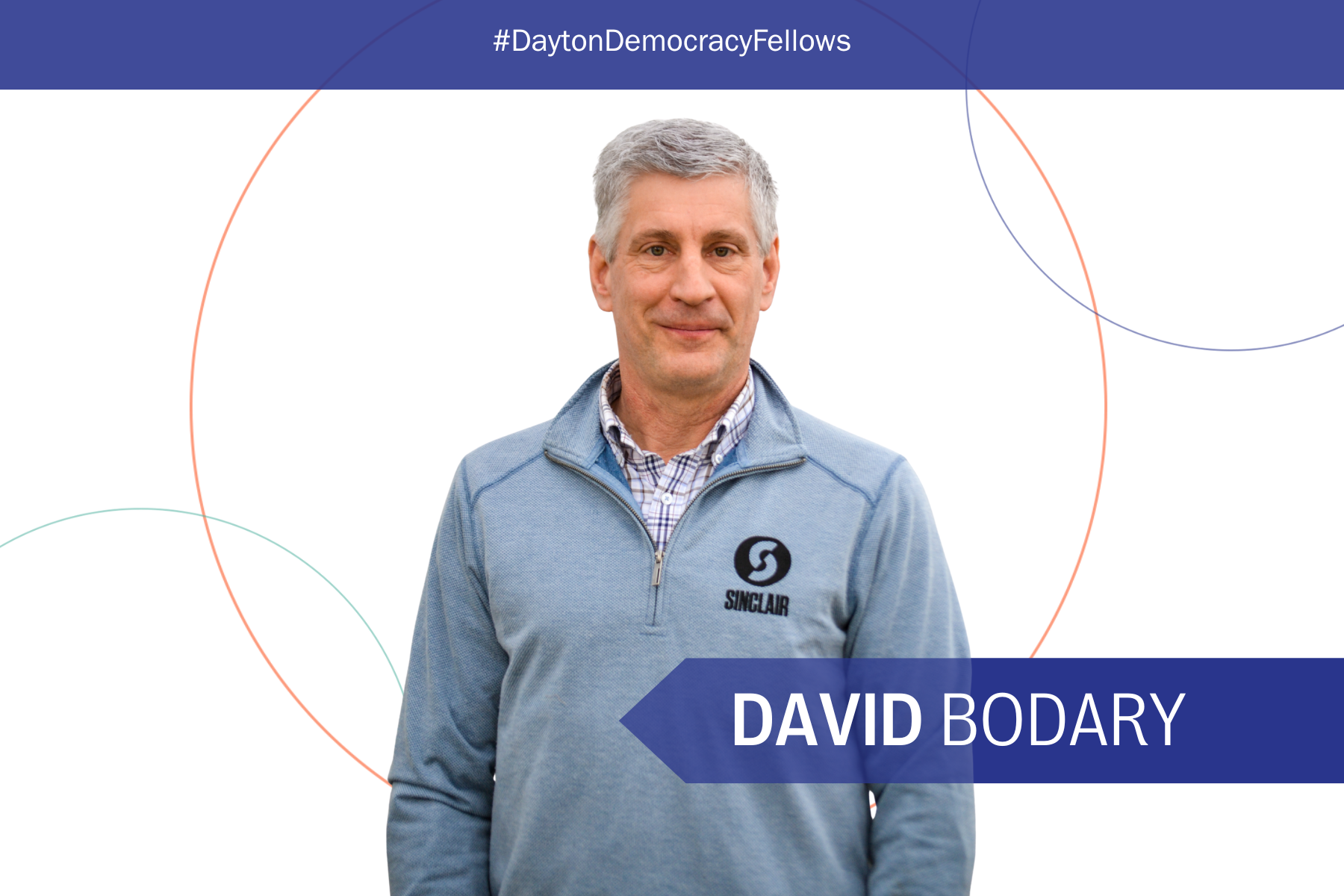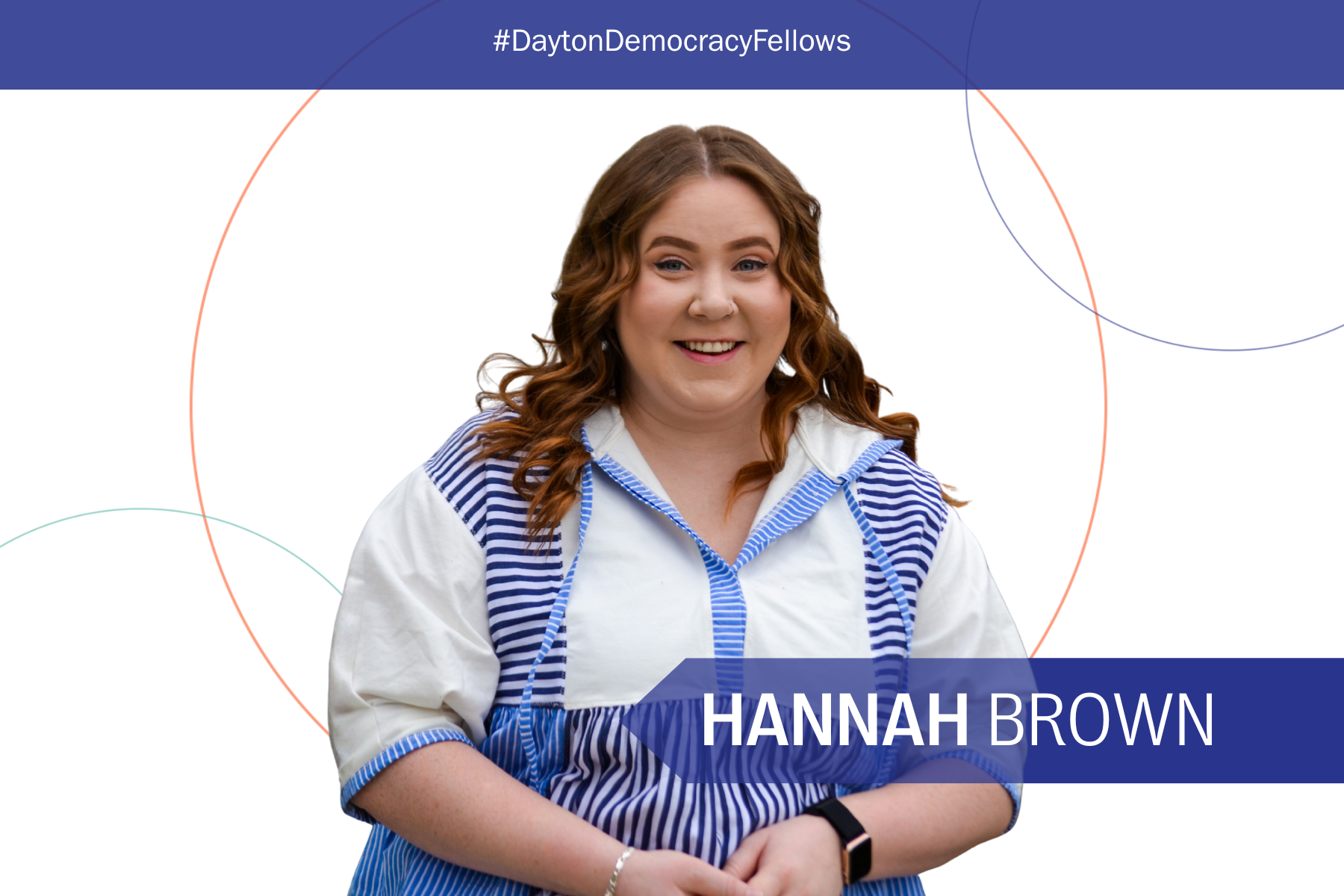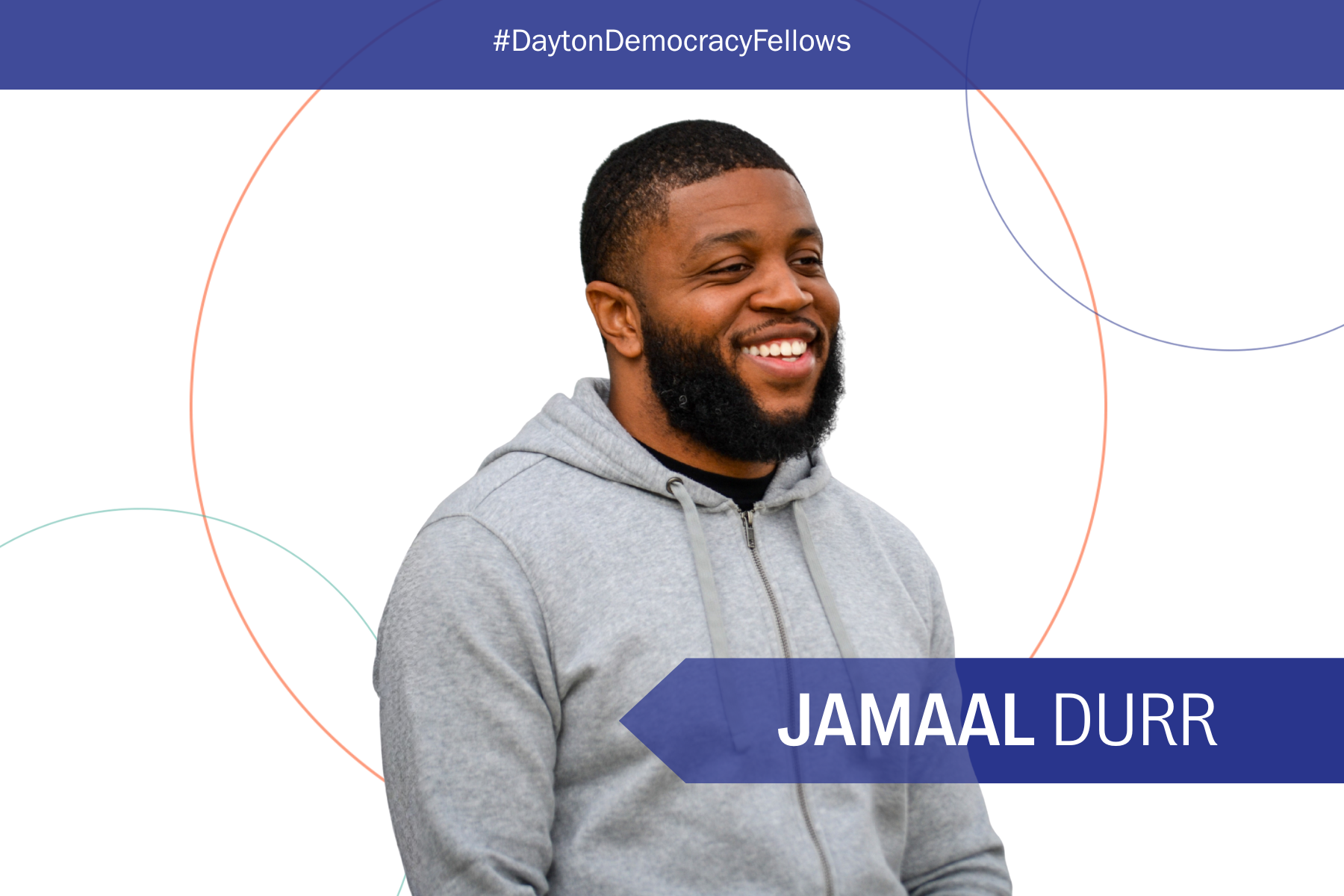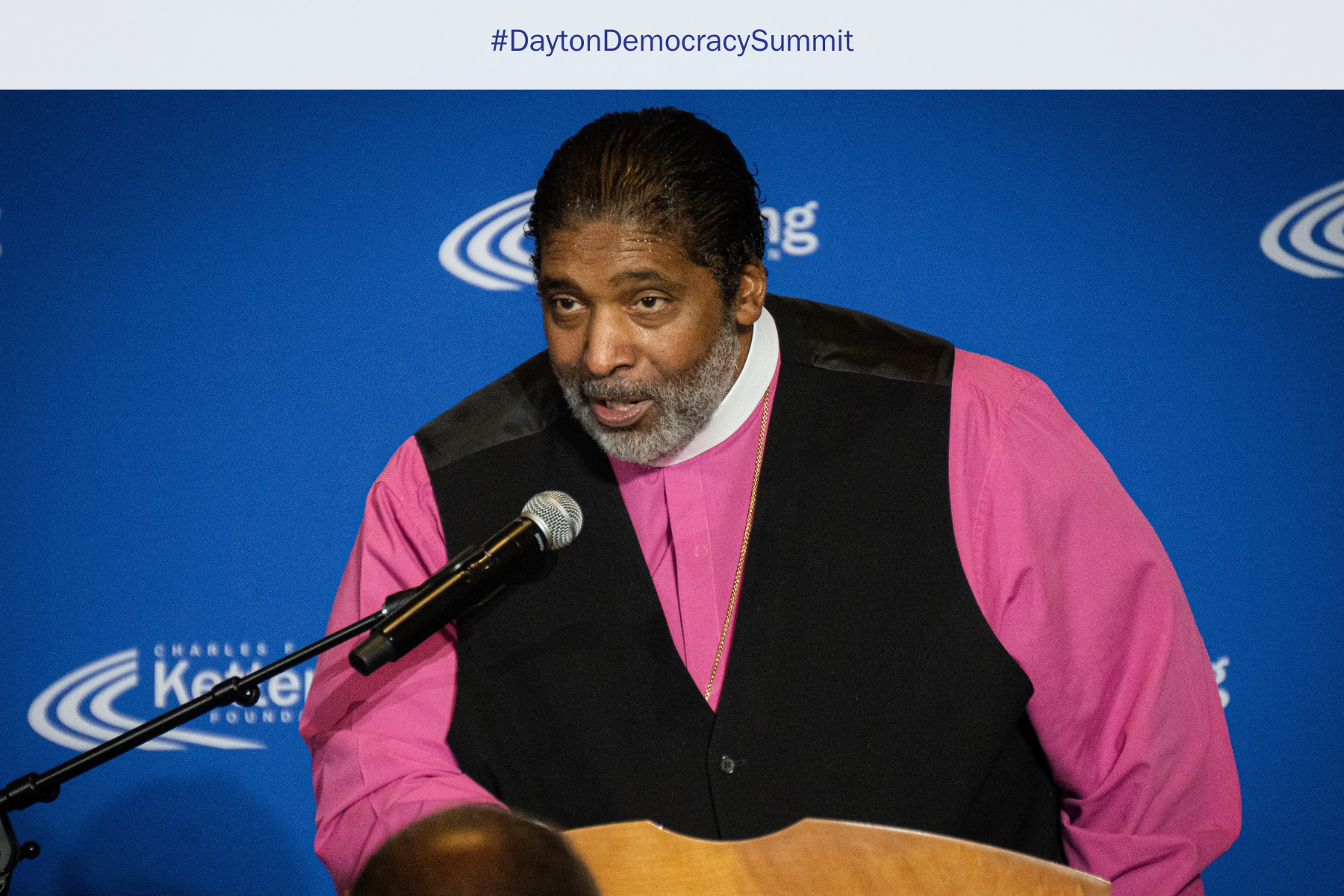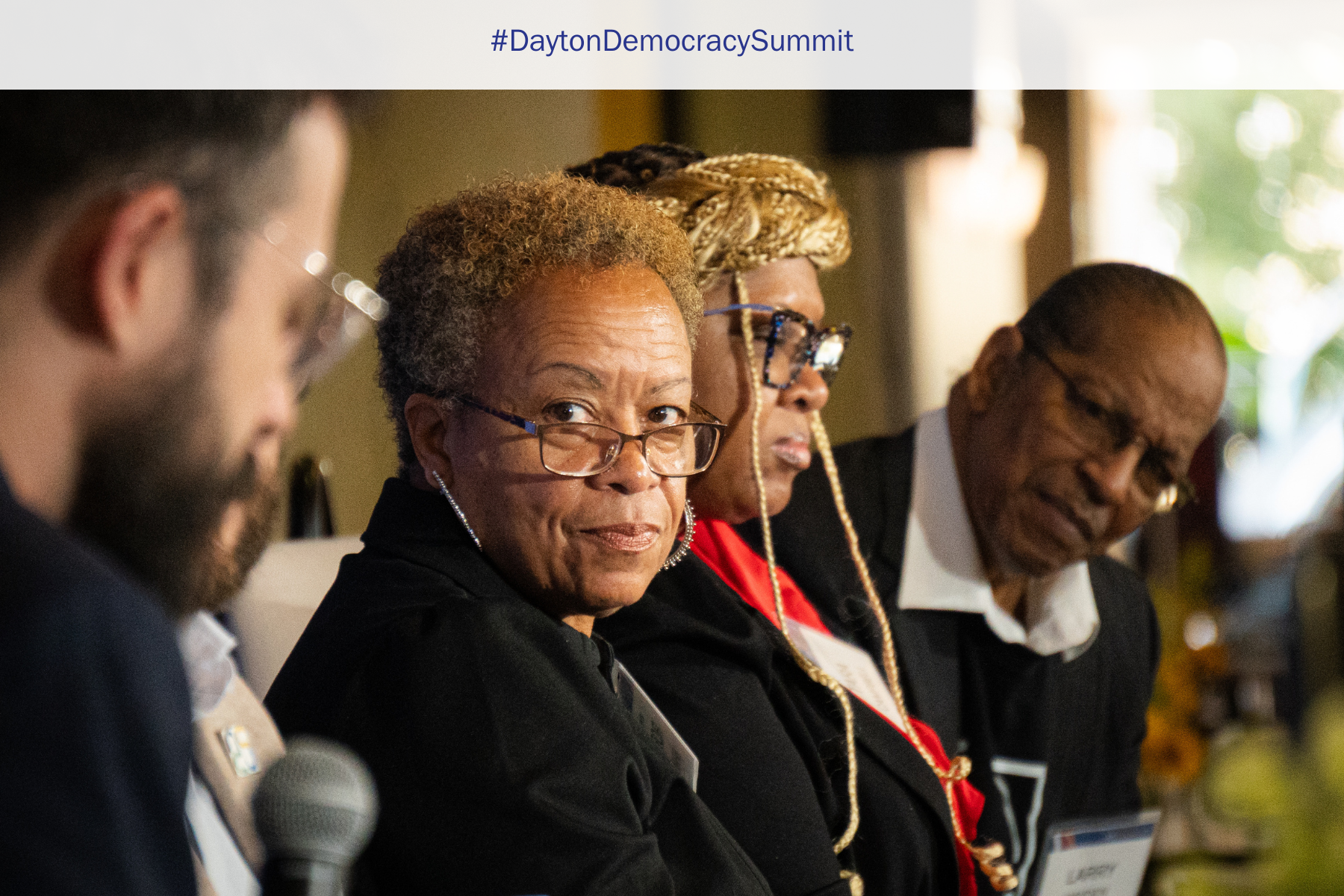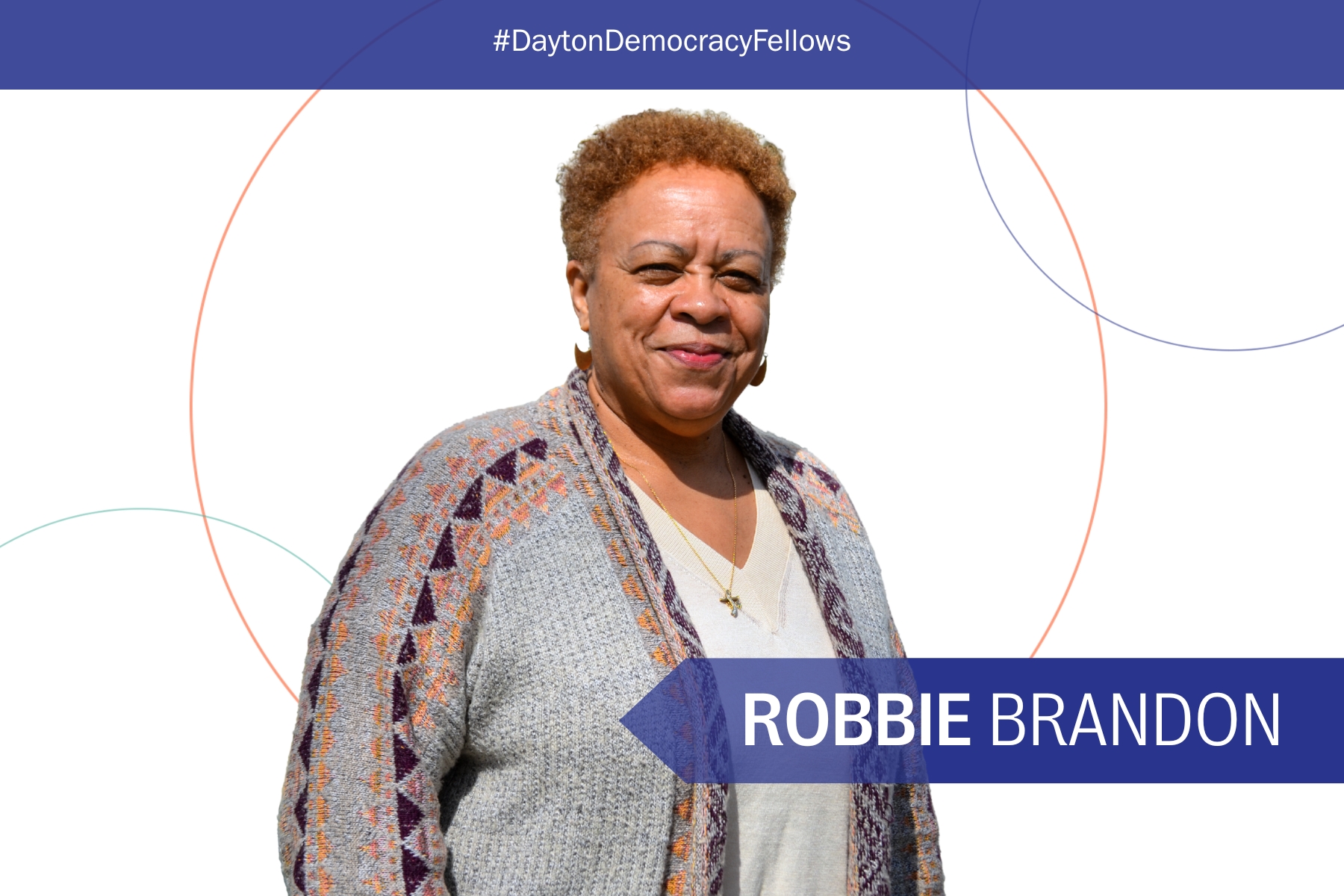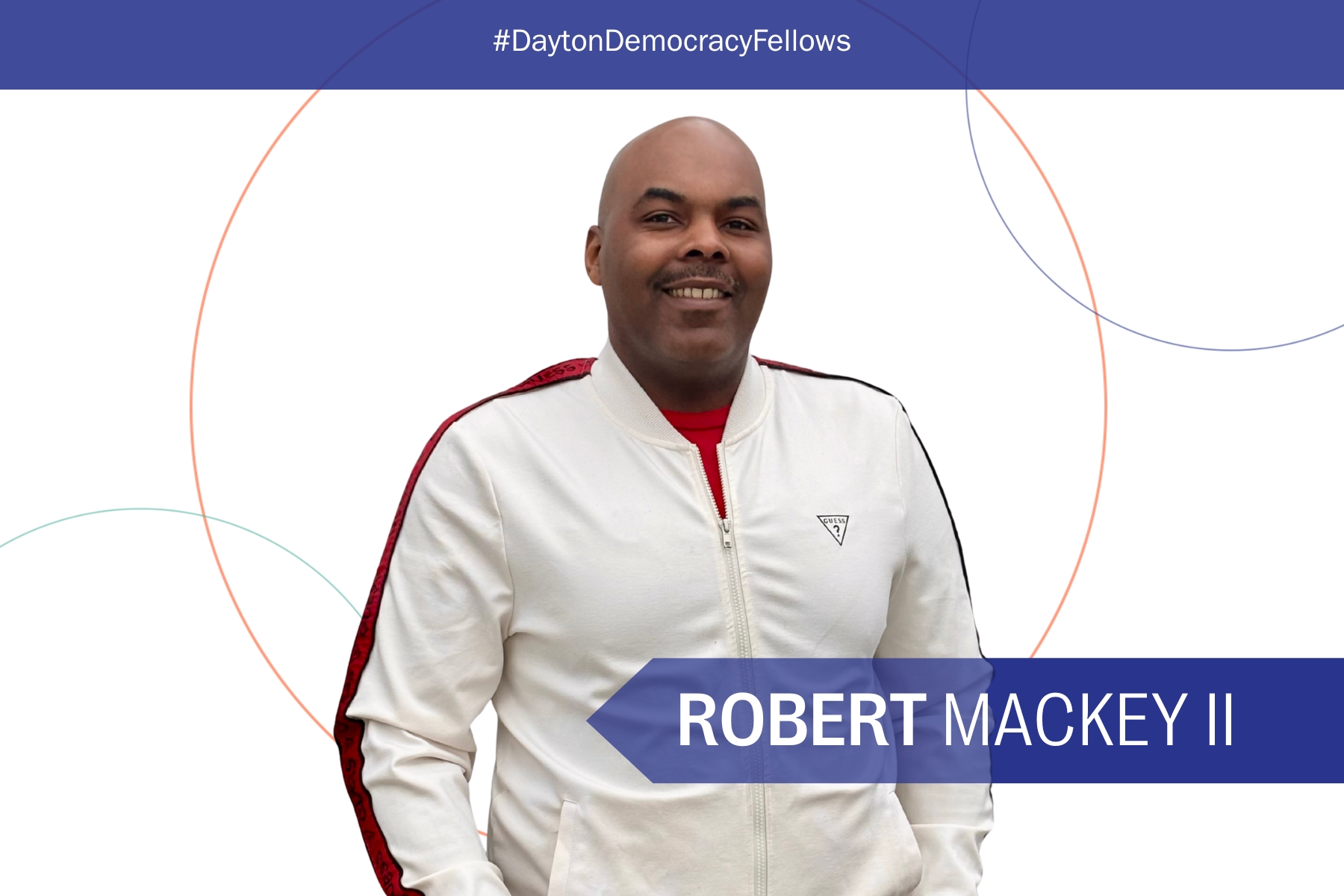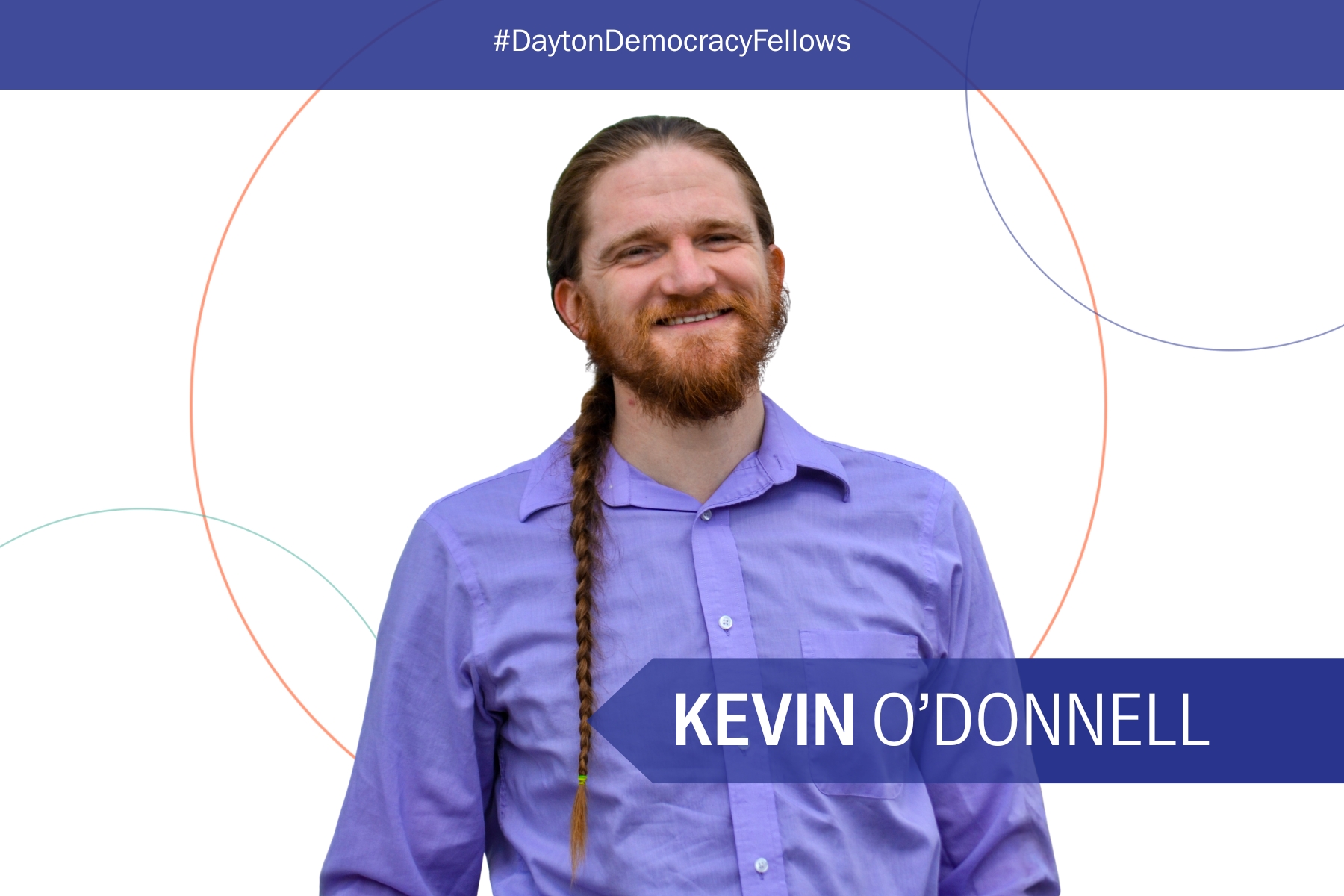Dee Wooding: A Warrior for Good
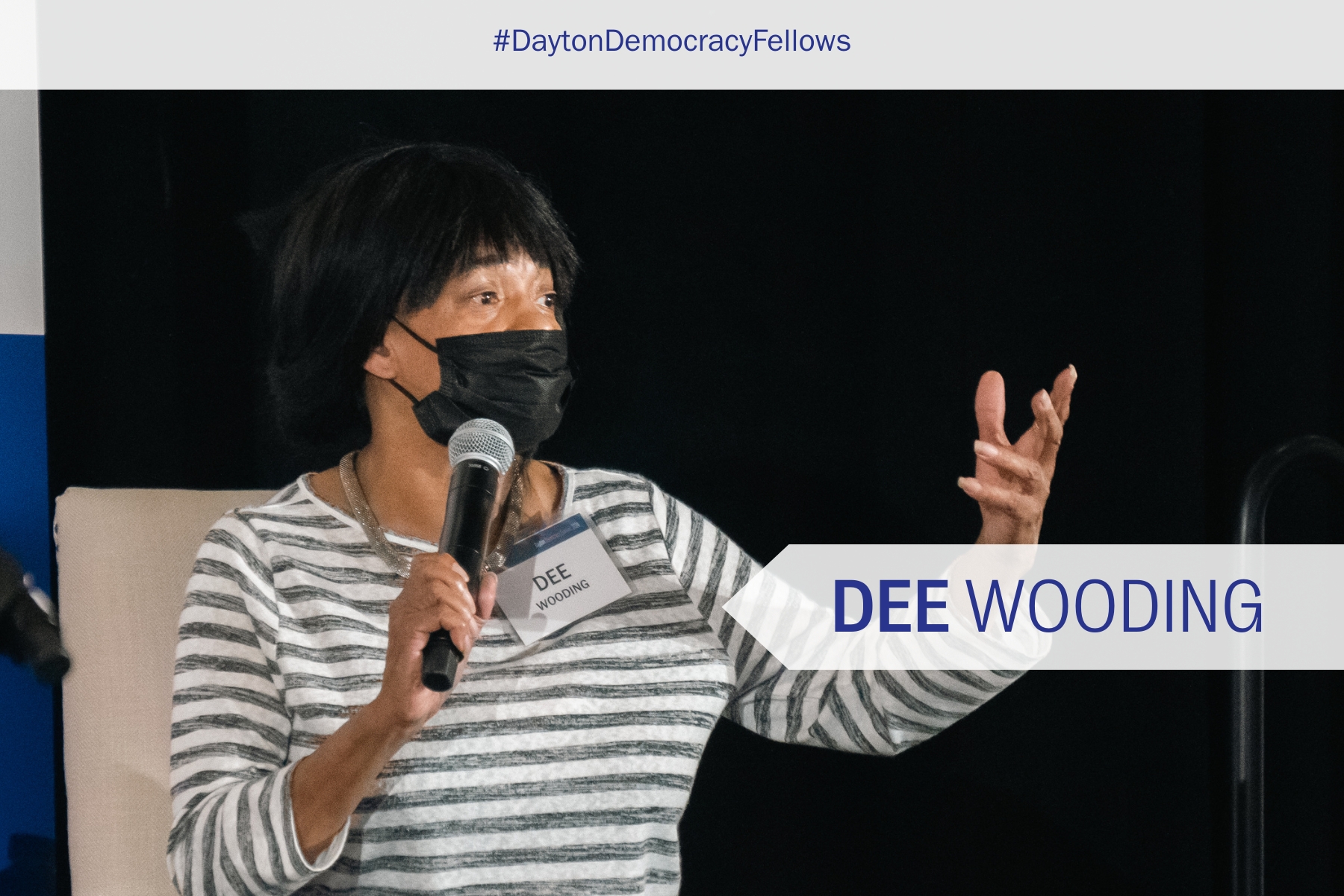
The Kettering Foundation’s Dayton Democracy Fellowship is a one-year program that supports innovative leaders, changemakers, and dreamers who are building movements for inclusive democracy in their communities and in our wider world. This series of articles about the Dayton Democracy Fellows highlights their robust work and the powerful narratives that drive the advancement and defense of democracy.
Dayton Democracy Fellow Dee Wooding is more than a neighborhood organizer/champion and a nonprofit consultant. As a lifelong resident of Dayton's Westwood neighborhood, she is a warrior for good in an area that has been marked by illegal dumping, the harmful legacy of redlining and predatory lending, and more than its share of vacant lots and boarded up homes.
When her parents moved to the area in the 1960s, it was a different story. Area factories such as General Motors provided good jobs. "Everybody owned their own homes," Wooding said. But one by one, the plants closed. Young people moved away. Their elderly parents stayed, but often didn't have the money to make improvements on their own homes. The neighborhood declined.
Wooding said that two things galvanized her decision to improve Westwood. One was reading a 2013 University of Dayton report that identified problems in the neighborhood, including the fact that 1,008 houses out of 3,538 in Westwood were boarded up.
The second was an elderly neighbor named Jeanette Adkins. She had been a block coordinator for 50 years and still retained the instincts of an activist herself. Every time Adkins needed to walk to the bus stop two blocks away, she would take tools with her to cut back overgrown weeds and overhanging branches. Sometimes she would even use her mower to cut back the high grass.
Watching this proud, elderly lady waging her solitary struggle against neighborhood decline, Wooding decided in 2018 that enough was enough. She started the Westwood Right Project CDC, a community development corporation. She combed through the University of Dayton report but noted that it didn't offer much in the way of next steps for her neighborhood. So she called a community meeting to ask, "What can be done?"
About 25 people showed up at the first meeting, and Wooding's organization began. "Doing nothing was not an option," Wooding recalled.
"When we finally realized that nobody had a plan, we started with basic cleanups," Wooding said. "We saw right away that there was a lot of illegal dumping." The group decided to buy 12 lots for $200 each along Hoover Avenue. "We decided we could make beautiful garden spaces on some and build homes on others. We purchased one of the dilapidated homes," Wooding said.
The two-bedroom home was rodent-infested and falling apart. The organization got donations, and the volunteers got to work. They gutted the home and put in new plumbing and wiring. The bathrooms and kitchen were also renovated and updated. The home became a beauty where it was once a beast.
It is now worth $95,000, but the organization will sell it for less to a first-time homebuyer—a single mom—and arrange for her to get a $30,000 grant to help with the purchase. She'll have a like-new home for $45,000, Wooding said.
She noted that it's hard to buy more homes, even dilapidated ones, because out-of-town investors have purchased many of them, slap a coat of paint on them and then rent substandard housing to people for $900 a month. The tenants are afraid to complain, she said.
The Westwood Right Project CDC's goal is to build 10 new homes, sell them to people in need for a small profit, and use the money to build more homes. "The goal is to build the community back up with affordable home ownership opportunities for first-time homeowners," Wooding said. "And give people hope."
To Wooding, the tie-in between her nonprofit work, her community activities with Westwood Right, and democracy is obvious. "Democracy is power to the people," she said. Following "our very first meeting we had up to 60 people attend. Each knows that they have the power within them to make change. We will go to City Hall and collectively say, 'This is what we need.' and 'Our voices matter.' We used our voice and got things done."
Many positive things have happened since the organization began. A safety plan and a neighborhood comprehensive plan have been completed, and the neighborhood will be getting a new police station. Through their advocacy work, Westwood has now been designated as a community reinvestment area.
Inspired through her work as a Kettering Foundation Democracy Fellow, Wooding said she has become engaged in voter registration, inviting nonpartisan organizations to help with registration efforts and educating people who might mistakenly believe that they were unable to vote. She is also recruiting 100 strong voices/volunteers for Westwood. They will learn how to advocate for the needs of the neighborhood.
In the meantime, Wooding is eyeing whether her group can inspire other neighborhoods to do what they did in Westwood.
That's what democracy is all about, she said. "We educate to advocate. We want democracy. We want equity. We want to make sure your voice is heard. It's more than just voting," she said. It's about hope, too. Wooding believes in hope and what her community can do because she has seen them do great things already. Obstacles don't bother her anymore, if they ever did. "After all," she observed, "as Nelson Mandela once said, 'It always seems impossible until it's done.'"
Maura Casey is a former editorial writer for the New York Times and has worked with the Kettering Foundation since 2010.
The Charles F. Kettering Foundation Dayton Democracy Fellowship is a one-year program designed to support innovative leaders, changemakers, and dreamers who are building movements for inclusive democracy in their communities and in our wider world.
